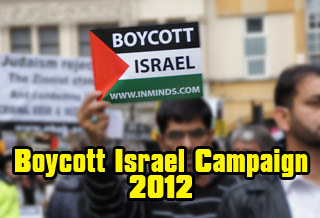
 Innovative Minds © 2014. All Rights Reserved. www.inminds.co.uk | ||||
|
Comment: To highlight the importance of the cultural boycott, an article on how Israel is using culture as a weapon to whitewash its crimes. After Gaza, Israel Grapples With Crisis of IsolationEthan Bronner, New York Times Israel, whose founding idea was branded as racism by the United Nations General Assembly in 1975 and which faced an Arab boycott for decades, is no stranger to isolation. But in the weeks since its Gaza war, and as it prepares to inaugurate a hawkish right-wing government, it is facing its worst diplomatic crisis in two decades. 
The Israeli Foreign Ministry has been granted an extra $2 million to improve Israelâs image through cultural and information diplomacy.
Examples abound. Its sports teams have met hostility and violent protests in Sweden, Spain and Turkey. Mauritania has closed Israelâs embassy. Relations with Turkey, an important Muslim ally, have suffered severely. A group of top international judges and human rights investigators recently called for an inquiry into Israelâs actions in Gaza. âIsrael Apartheid Weekâ drew participants in 54 cities around the world this month, twice the number of last year, according to its organizers. And even in the American Jewish community, albeit in its liberal wing, there is a chill. The issue has not gone unnoticed here, but it has generated two distinct and somewhat contradictory reactions. On one hand, there is real concern. Global opinion surveys are being closely examined and the Foreign Ministry has been granted an extra $2 million to improve Israelâs image through cultural and information diplomacy. âWe will send well-known novelists and writers overseas, theater companies, exhibits,â said Arye Mekel, the ministryâs deputy director general for cultural affairs. âThis way you show Israelâs prettier face, so we are not thought of purely in the context of war.â But there is also a growing sense that outsiders do not understand Israelâs predicament, so criticism is dismissed. âPeople here feel that no matter what you do you are going to be blamed for all the problems in the Middle East,â said Eytan Gilboa, a professor of politics and international communication at Bar Ilan University. âEven suicide bombings by Palestinians are seen as our fault for not establishing a Palestinian state.â Of course, for Israelâs critics, including those who firmly support the existence of a Jewish state, the problem is not one of image but of policy. They point to four decades of occupation, the settling of half a million Israeli Jews on land captured in 1967, the economic strangling of Gaza for the past few years and the societyâs growing indifference toward the creation of a Palestinian state as reasons Israel has lost favor abroad, and they say that no amount of image buffing will change that. Israelâs use of enormous force in the Gaza war in January crystallized much of this criticism. The issue of a Palestinian state is central to Israelâs reputation abroad, because so many governments and international organizations favor its establishment in the West Bank, Gaza and East Jerusalem. And while the departing government of Prime Minister Ehud Olmert negotiated for such a state, the incoming one of Benjamin Netanyahu says that item is not on its immediate agenda. Javier Solana, foreign policy chief for the European Union, said in Brussels on Monday that the group would reconsider its relationship with Israel if it did not remain committed to establishing a Palestinian state. Moreover, Mr. Netanyahu is expected to appoint Avigdor Lieberman, leader of the ultranationalist Yisrael Beiteinu party, as his foreign minister. This alone has Israelis and their allies in Europe and the United States worried because of Mr. Liebermanâs views of Israeli Arabs that some have called racist. Mr. Lieberman had campaigned on the need for a loyalty oath in Israel so that those who did not support a Jewish democratic state would lose their citizenship. One-fifth of Israeli citizens are Arabs, and many do not support defining the state as Jewish. Mr. Lieberman also has few fans in Egypt, which has acted as an intermediary for Israel in several matters. Some months ago Mr. Lieberman complained that President Hosni Mubarak of Egypt had not agreed to come to Israel. âIf he doesnât want to, he can go to hell,â he added. âImagine that Hossein Mousavi wins the Iranian presidency this spring and he names Mohammad Khatami as his foreign minister,â said Meir Javedanfar, an Iran analyst in Israel, referring to two Iranian leaders widely viewed as in the pragmatist camp. âWith Lieberman as foreign minister here, Israel will have a much harder time demonstrating to the world that Iran is the destabilizing factor in the region.â Of course, all of this is being seen in the context of a new, Democratic administration in the United States that has announced a desire to press for a two-state solution. Secretary of State Hillary Rodham Clinton has already criticized Israeli plans to demolish Palestinian homes in East Jerusalem, and her department has criticized Israelâs banning of certain goods from Gaza. This represents a distinct shift in tone from the Bush era. An internal Israeli Foreign Ministry report during the Gaza war noted that compared with others in the United States, âliberals and Democrats show far less enthusiasm for Israel and its leadership.â The gap between Israelis and many liberal American Jews could be seen Tuesday in a blog by Bradley Burston, who writes on the Web site of the left-leaning newspaper Haaretz. He said that while visiting Los Angeles he faced many questions that amounted to âWhat is wrong with these people, your friends, the Israelis?â He quoted an article by Anne Roiphe, an American Jewish liberal, which said that witnessing the popularity of Mr. Lieberman in Israel made her feel âas if my spouse had cheated on me with Mussolini.â She added: âWe here in America are waiting as of this writing for a government to emerge in Jerusalem, and most of us keep on hoping that its shape will not preclude the peace process, will not doom a two-state solution, will not destroy the hope that our new president brings to the table.â Mr. Burston pointed to the thousands of rockets fired from Gaza into Sderot and other Israeli cities and towns and titled his piece âThe Racist Israeli Fascist in Me.â Some Israeli officials say they believe that what the country needs is to ârebrandâ itself. They say Israel spends far too much time defending actions against its enemies. By doing so, they say, the narrative is always about conflict. âWhen we show Sderot, others also see Gaza,â said Ido Aharoni, manager of a rebranding team at the Foreign Ministry. âEverything is twinned when seen through the conflict. The country needs to position itself as an attractive personality, to make outsiders see it in all its reality. Instead, we are focusing on crisis management. And that is never going to get us where we need to go over the long term.â Mr. Gilboa, the political scientist, said branding was not enough. âWe need to do much more to educate the world about our situation,â he said. Regarding the extra $2 million budgeted for this, he said: âWe need 50 million. We need 100 million.â Source: http://www.nytimes.com/2009/03/19/world/middleeast/19israel.html?_r=4&partner=rss&emc=rss International Brand Israel seminar to be launched by the Foreign MinistryIsrael Ministry of Foreign Affairs Foreign Minister Livni: "It's time to bridge the gap between the real Israel and its international image. Israel has much to offer to the world." (Communicated by the Foreign Ministry Spokesman) On October 25-27 the Brand Israel seminar will take place at the Sheraton Hotel, Tel Aviv, in cooperation with the Israeli Association of Advertising Companies. This seminar is the culmination of a process during which planning, design and research of Israel's branding were carried out. On the first day of the seminar, recent surveys and focus groups on branding will be presented. On the following two days working groups will get together in order to create a strategic concept for the Israel brand. The process will be accompanied by a special website www.brandisrael.org.il that will be launched on the morning of the seminar. Like dozens of countries going through branding processes in the last decades, the goal is to improve Israel's image among the different audiences, in a way that will advance several objectives, mainly in the area of trade and commerce: expanding Israel's export, increasing incoming tourism and publicizing the attractiveness of foreign investments. Moreover, strengthening Israel's positive image could improve Israel's political stand. Minister Livni will open the seminar on Wednesday 25 October at 09:30. Members of the press are invited to cover the speech and the first session of the seminar, dealing with the Israeli brand in the US. Source: http://www.mfa.gov.il/MFA/About+the+Ministry/MFA+Spokesman/2006/International+Brand+Israel+seminar+to+be+launched+this+week+by+the+Foreign+Ministry+24-Oct-2006.htm
Also Of InterestPage URL: http://inminds.com/article.php?id=10378
|
|
Support Us
If you agree with our work then please support us.Campaigns INMINDS Facebook Live Feed Latest Video's
INMINDS Twitter Feed Tweets by @InmindsComFeatured Video's
You need Flash player 8+ and JavaScript enabled to view this video.
[all videos (over 200)..] Featured MP3 Podcast  "You cannot simplify the question of violence.. You look at human history - the American revolution, the civil war, the end of slavery in the United States, the African National Congress, the end of colonialism - by and large these were some combination of popular social uprisings and social movements and non-violent protests AND armed resistance. Now that doesn't mean I'm advocating for any armed action today, I'm not. I'm committed to finding ways of acting and speaking and making people laugh and doing art and disrupting the war machine in other ways, but I think focusing on violence when we have the comfort of being protected by mass of armed violence is not non-violence at all.. if you are pointing to the mass of violence and who's doing the mass of violence in the world today, you have to look to state violence - that's people bombing whole cities from the air.. " A founder of the Weather Underground, a revolutionary group that waged war against the US government in the 70s in response to the Vietnam War. Interview, Radio Neatherlands (TSWI) 30 June 2007 [12min / 6Mb] [all podcasts..] Newsletter Feedback |
 |
 |
















































